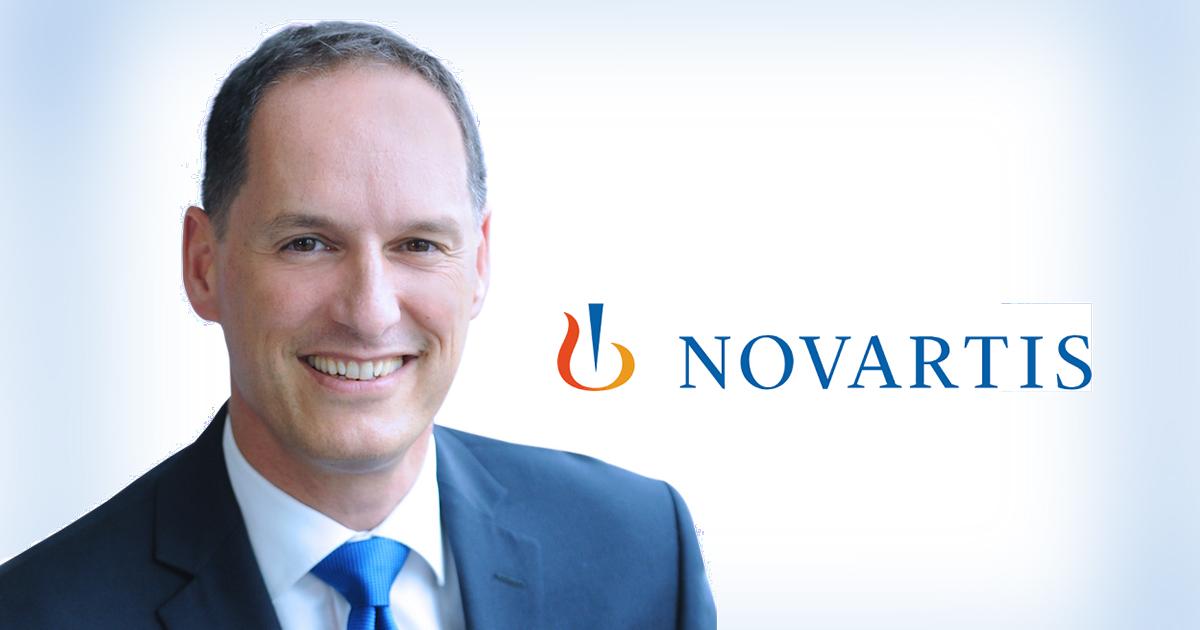Novartis’ New Head of Ophthalmology Lays Out Lofty Goals Days Before Xiidra Deal

VANCOUVER – Novartis is one of the world’s largest ophthalmic pharmaceutical companies, with $4.6 billion in assets as part of the Medicines division, yet some people in ophthalmology still think of it only as Alcon’s ex-parent. That’s about to change as Nikolaos Tripodis, PhD, the company’s worldwide franchise head, ophthalmology, told OIS Weekly at a sit-down meeting here during ARVO 2019.
“What that means for us – it’s very bold – but we want to ultimately and potentially make visual impairment and blindness history,” Dr. Tripodis said. “We can do that by bringing life-changing breakthrough innovation to healthcare professionals.” He made his comments just days before Novartis announced it had reached an agreement to acquire Xiidra from Takeda.
That goal – to eliminate visual impairment and blindness – drives the company’s direction. “We have a great responsibility because we have a very broad portfolio,” Dr. Tripodis noted. “We have over 70 products covering diseases and conditions that are in the front, the middle, and the back of the eye, and we have an exciting pipeline.” All told, he said, Novartis “treats close to 200 million people around the world with the breadth of our portfolio.”
For now, Novartis plans to concentrate on “the four Rs” in ophthalmology: retina, rare diseases, regenerative medicines, and refractive.
Pipeline Potential
In retina, Novartis recently submitted brolucizumab in the US for the treatment of wet age-related macular degeneration. If approved, it could be the first intravitreal injection with a 12-week dosing schedule. The pivotal studies were successful, achieving the primary endpoint of non-inferiority to aflibercept (Eylea, Regeneron) in best-corrected visual acuity, and “a number of secondary endpoints where it would demonstrate superiority to aflibercept in key anatomical indicators that are important in the decision making for physicians,” Dr. Tripodis said. It may help reduce dropout rates.
Beyond brolucizumab, Novartis is also developing ECF843 for dry eye, UNR844 for presbyopia (reduction of disulfide bonds), and a candidate to treat ocular surface pain.
Further, Novartis has an in-house gene therapy program for the management of retinitis pigmentosa (RP) coming from a specific mutation different from the RPE65 mutation that Luxturna (voretigene neparvovec, Spark Therapeutics) targets. Spark entered into a merger agreement in February with Roche, but Novartis has all ex-US rights to that gene therapy product. If the RP pipeline is successful, “it will be the first time that a big pharmaceutical company brings an in-house gene therapy program from early development all the way to the hands of the physicians and the patients,” Dr. Tripodis added.
To Buy or Not to Buy
One concept that will not change under Dr. Tripodis’ reign is pursuing “bold acquisitions. We are always on the lookout for exciting science,” regardless of where that innovation is initiated. Novartis brings to the table its vast commercial and market access experience, which smaller biotechs often do not have. It was only a few days after our sit-down that Novartis announced its purchase of Takeda’s dry eye franchise.
“By targeting a key underlying cause of disease in addition to addressing the symptoms of dry eye, Xiidra is an important expression of our commitment to ophthalmology and to expanding patient access to transformative pharmaceuticals,” Dr. Tripodis said in a quote provided after the ARVO sit-down. “It also helps lay groundwork for front-of-the-eye pipeline products currently in development.”
At ARVO, he told OIS Weekly, “Every acquisition, every new asset we bring in, every collaboration has things each side can learn.” But not everything has to be commercially successful for it to be a success.
“When we look into breakthrough innovation, we are going to get some things wrong. If you don’t, you’re not trying hard enough to innovate. If you only look for incremental improvements, then you will probably not make many mistakes,” he said. “Making mistakes is a price we’re very happy to pay because we strongly believe that it’s through breakthrough innovation that you will get the maximum benefits and maximum reward from society.”
Finally, Dr. Tripodis hopes that Novartis will be “considered as a partner, not just for physicians, but also for healthcare systems, the partner of choice for patient associations, the partner of choice for academic institutions and biotech companies. We believe that only through successful partnerships can we bring drugs faster to the clinic.”
For questions about this article, please contact Michelle Dalton at mdalton@dalton-and-associates.com.
